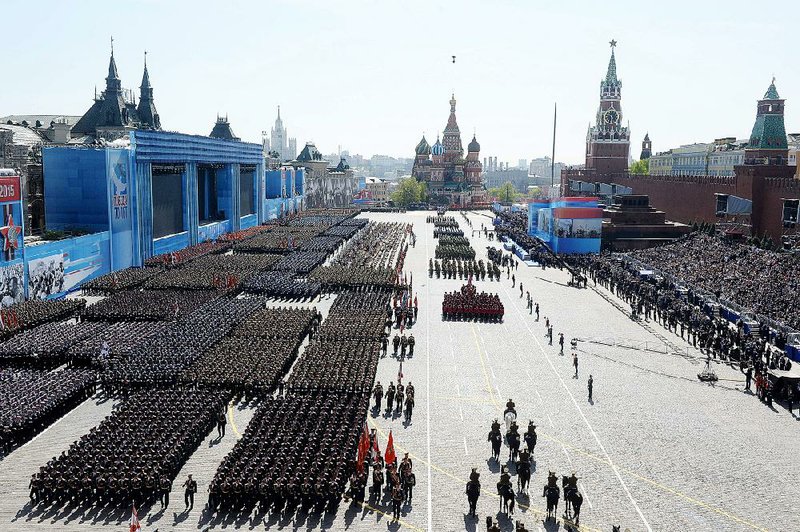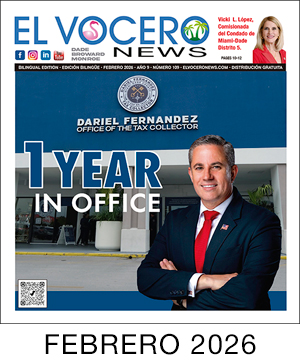Russia once more sounds their drumbeats of war loud and clear, even after many rounds of diplomacy with NATO, that Russia continues to exploit to gain time and amass war resources along the border with Ukraine. Russia has clear objectives regarding their estranged Ukrainian neighbors, including unrestricted access to warm water ports in the Black Sea. In addition, Russia wants a final political resolution in which Ukraine accepts the illegal annexation of Crimea by Russia and positioning Russian troops inside Ukrainian territory as a buffer zone against NATO. In exchange, Russia is promising not to wipe off the State of Ukraine’s map. What a generous offer by Czar Putin!
Let’s remember that the Russian ambitions regarding Ukraine have a long history dating since the coronation of Peter I (Peter the Great) in 1682. Russia realized their political survival depended on access to maritime ports regarded as «warm water ports» that would give Russia year-round naval capabilities to confront France, The United Kingdom, Germany, and later on, the United States. This situation is where geostrategy comes into play. Ukraine offers what Russia needs and does not have: unrestricted access to the Black Sea with passage to the Mediterranean Sea and the Atlantic Ocean and access to the Suez Canal in Egypt reaching the Red Sea and the Indian Ocean. In addition, complete control of the Black Sea by Russia would place hundreds of Russian warships and tens of thousands of troops facing our NATO allies of Turkey, Bulgaria, and Romania, giving Russia the strategic advantage of attacking Europe at a moment’s notice. The funny part is that this is the same scenario that Russia is accusing NATO of doing with Ukraine, accusing the military alliance of planning to invade Moscow using Ukraine as the gateway for such invasion. But, of course, the world is seeing right through Putin’s intentions and not buying the Russian argument nor their intentions to rule Europe and the Middle East.
The diplomatic efforts, so far, have not produced any relief to the hostilities, leaving war as clear and present danger in Europe. Russia continues making unrealistic demands from NATO, such as a guarantee that Ukraine never is permitted to join NATO. In addition, Russia demands the alliance roll back its expansion in Eastern Europe, thus sabotaging any real diplomatic effort to prevent a catastrophic conflict where the real casualties would be the hundreds of thousand Ukrainian civilian deaths. But the Russian Czar will not care about the Ukrainian people; for the ruler, these casualties are just a small price to pay in exchange for power and domination. Such is geostrategy: cold, cynic, and always portraying the best interest of each nation.
Czar Putin continues playing the diplomatic arena while intensifying his presence at the border with Ukraine, positioning over 100,000 troops and thousands of tanks. At the same time, the Russian military conducted live-fire exercises right along the border even as diplomatic negotiations were taking place. Czar Putin is blackmailing Europe with war and using Russian nationalistic rhetoric to gather support from the Russian people and extract favorable concessions from our European partners. Meantime, the Russian intelligence is paving the way for a pretext for an invasion by propagating misinformation and inflating nationalistic feelings among the Russian minority population in the Donetsk Oblast, home to almost 2 million Russians and a vital epicenter for the coal mining industry of Ukraine, another main objective of the Russian Czar.
NATO is preparing for the very likely event of a Russian invasion of Ukraine. By NATO, I mean the United States, where high ranking officials have made it clear the American support for Ukraine and continue accusing Czar Putin of using the diplomatic talks as a prelude for war. The US and European nations continue threatening Russian with economic sanctions, especially with shutting down the Nord Stream pipeline, an 11 billion dollars Russian energy infrastructure designed to bring Russian oil and natural gas to Europe. And here it is where things get more complicated in our attempts to stop Russia, dealing an almost fatal blow to Ukrainian hopes of keeping their sovereignty. Europe is a hungry consumer of oil and natural gas they use for heating purposes and fuel their economies, creating a symbiotic relationship between oil-rich Russia and oil-dependent Europe that could harm both players if sanctions were to take place in the near future. Again, geostrategy plays it’s long and calculated hand in the fate of nations. The leading proponent for this pipeline is Germany, which happens to be the most robust economy in the European Union and the prominent supporter of its currency, the euro. Germany continues to label the Nord Stream pipeline as an important project for the German economy, thus creating cracks among the unified European front against Russia. The Nord Stream pipeline means cheaper Russian oil and natural gas straight to German homes, thus eliminating the need to pay royalties to the Ukrainian government to use their territories. However, Nord Stream could create an economic crisis in Ukraine, resulting in Kyiv coming closer to Moscow than Europe. This geostrategic rearrangement could be a severe blow to the US and our allies in NATO. In geostrategy, just like Ukraine is the perfect path for NATO to invade Moscow, it is also the ideal path for Moscow to invade Europe.
The threat of sanctions is not high enough for Czar Putin and his global ambitions. Sanctions come and go, as they are tools in the diplomatic process, and therefore, sanctions are not an existential threat to any totalitarian regime. Sanctions are nothing else but a band-aid treatment to a hemorrhage, and Czar Putin is an expert in creating global hemorrhages, knowing the world can do very little to stop him. During the Russian annexation of Crimea, a reporter asked Czar Putin why he wanted to annex Crimea, and his answer was, «no one told me I couldn’t do it.» Sanctions are not the correct answer to stop the Russian bear from eating up Ukraine, and Czar Putin knows it.
In world affairs, diplomacy is an art that dances to the tune of its masters. It could be that Russia does not want to risk financial sanctions at this moment, where the Russian economy has been on the decline for many years. It is still too soon to forget that the oil prices were negative just a couple of years ago. The US was exporting natural gas to Europe, causing billions of dollars in losses to the Kremlin. In addition, the US still rules Europe with American troops stationed there and with unrestricted access to the European air space to our strategic bombers and air forces. Another geostrategic scenario could be, even though very unlikely, that Czar Putin does not know how to deal with Ukraine. A Russian invasion of Ukraine could be the beginning of a prolonged state of hostilities, draining Russian resources with a high chance of failure in the long term. Or maybe Czar Putin wants to play the victim in this conflict and make NATO force his hand with Ukraine, thus justifying his use of force against the inferior Ukrainian forces. Either way, geostrategy once again plays its hand, favoring each nation’s best interests, relegating alliances to the political realm, and placing the future of millions of people in the hands of the world powers. May God save Ukraine!
Rusia: Al Sonido de los Tambores de Guerra
Rusia vuelve a hacer sonar sus tambores de guerra altos y claros, incluso después de muchas rondas diplomáticas con la OTAN, las cuales Rusia continúa explotando para ganar tiempo y acumular recursos de guerra a lo largo de la frontera con Ucrania. Rusia tiene objetivos claros con respecto a sus vecinos ucranianos, incluido el acceso sin restricciones de Rusia a los puertos de aguas cálidas en el Mar Negro, una resolución política final en la que Ucrania aceptaría la anexión ilegal de Crimea por parte de Rusia, y el posicionamiento de las tropas rusas dentro del territorio ucraniano creando una zona de amortiguador contra la OTAN. A cambio, Rusia promete no borrar del mapa al Estado de Ucrania. ¡Qué oferta tan generosa del Zar Putin!
Recordemos que las ambiciones rusas respecto a Ucrania tienen una larga historia que data de la coronación de Pedro I (Pedro el Grande) en 1682, cuando Rusia se dio cuenta de que su propia supervivencia política dependía del acceso a puertos marítimos considerados como “puertos de aguas cálidas” que le darían las capacidades navales de Rusia durante todo el año para enfrentarse a Francia, el Reino Unido, Alemania y, más tarde, a los Estados Unidos. Aquí es donde entra en juego la geoestrategia, ya que Ucrania ofrece exactamente lo que Rusia necesita y no tiene, que es acceso sin restricciones al Mar Negro con paso al Mar Mediterráneo y al Océano Atlántico, y acceso al Canal de Suez en Egipto que llega al Mar Rojo y el Océano Índico. Además, un control total del Mar Negro por parte de Rusia colocaría a cientos de buques de guerra rusos y decenas de miles de tropas frente a nuestros aliados de la OTAN como Turquía, Bulgaria y Rumania, lo que le daría a Rusia la ventaja estratégica de atacar Europa en cualquier momento. La parte divertida de este caso es que este es el mismo escenario que Rusia acusa a la OTAN de hacer con Ucrania, acusando a la alianza militar de planear invadir Moscú utilizando a Ucrania como puerta de entrada para tal invasión. Por supuesto, el mundo está viendo a través de las intenciones de Putin y no compra el argumento ruso ni sus intenciones de gobernar Europa y el Medio Oriente.
Los esfuerzos diplomáticos, hasta el momento, no han producido ningún alivio a las hostilidades, dejando la guerra como peligro claro y presente en Europa. Rusia continúa haciendo demandas poco realistas a la OTAN, como la garantía de que a Ucrania nunca se le permitirá unirse a la OTAN, y que la alianza militar revertirá su expansión en Europa del Este, saboteando así cualquier esfuerzo diplomático real para prevenir un conflicto catastrófico donde las verdaderas víctimas serían los cientos de miles de muertes de civiles ucranianos. Pero al zar ruso no le importará el pueblo ucraniano, para el gobernante estas bajas son solo un pequeño precio por pagar a cambio de poder y dominación. Así es la geoestrategia: fría, cínica y siempre representando los mejores intereses de cada nación.
El zar Putin continúa jugando en la arena diplomática mientras intensifica su presencia en la frontera con Ucrania colocando más de 100.000 soldados y miles de tanques mientras el ejército ruso realiza ejercicios con fuego real a lo largo de la frontera, incluso mientras se llevan a cabo negociaciones diplomáticas. El zar Putin está chantajeando a Europa con la guerra y utilizando una retórica nacionalista rusa con la intención de obtener el apoyo del pueblo ruso y obtener concesiones favorables de nuestros socios europeos. Mientras tanto, la inteligencia rusa está allanando el camino creando un pretexto para una invasión al propagar información errónea e inflar los sentimientos nacionalistas entre la población minoritaria rusa en la región de Donetsk, hogar de casi 2 millones de rusos y un epicentro importante para la industria minera del carbón de Ucrania, otro objetivo principal del zar ruso.
La OTAN se está preparando para el muy probable evento de una invasión rusa a Ucrania, y por OTAN me refiero a Estados Unidos, donde altos funcionarios han dejado claro el apoyo estadounidense a Ucrania y siguen acusando al Zar Putin de utilizar las conversaciones diplomáticas como preludio de la guerra. Estados Unidos y las naciones europeas continúan amenazando a Rusia con sanciones económicas, especialmente con el cierre del oleoducto Nord Stream, una infraestructura energética rusa de $11 mil millones de dólares diseñada para llevar petróleo y gas natural ruso a Europa. Aquí es donde las cosas se complican más para nuestros intentos de detener a Rusia, asestando un golpe casi fatal a las esperanzas ucranianas de mantener su soberanía. Europa es un consumidor hambriento de petróleo y gas natural que utilizan para calefacción y para impulsar sus economías, lo que crea una relación simbiótica entre la Rusia rica en petróleo y la Europa dependiente del petróleo que podría perjudicar a ambos si se aplicaran sanciones en un futuro próximo. Aquí es donde la geoestrategia juega su papel largo y calculado en el destino de las naciones. El principal proponente de este oleoducto es Alemania, que resulta ser la economía más fuerte de la Unión Europea y el principal partidario de su moneda, el euro. Alemania continúa etiquetando el oleoducto Nord Stream como un proyecto esencial para la economía alemana, creando así grietas en el frente europeo unificado contra Rusia. El oleoducto Nord Stream significa petróleo y gas natural rusos más baratos directamente a los hogares alemanes, lo que elimina la necesidad de pagar regalías al gobierno ucraniano por el uso de sus territorios y crea una crisis económica en Ucrania, resultando en Kiev se acerque más a Moscú que a Europa. Esto podría ser un duro golpe para EE. UU. y nuestros aliados en la OTAN porque en geoestrategia, al igual que Ucrania es el camino perfecto para que la OTAN invada Moscú, también es el camino perfecto para que Moscú invada Europa.
La amenaza de sanciones no es lo suficientemente alta para el Zar Putin y sus ambiciones globales. Las sanciones van y vienen, ya que son herramientas en el proceso diplomático y, por tanto, las sanciones no son una amenaza existencial para ningún régimen totalitario. Las sanciones no son más que un tratamiento de curitas para una hemorragia, y el zar Putin es un experto en crear hemorragias globales sabiendo muy bien que el mundo puede hacer muy poco para detenerlo. Durante la anexión rusa de Crimea, se le preguntó al zar Putin por qué quería anexar Crimea y su respuesta fue «nadie me dijo que no podía hacerlo». Las sanciones no son la respuesta correcta para evitar que el oso ruso se coma a Ucrania, y el zar Putin lo sabe.
En los asuntos mundiales, la diplomacia es un arte que baila al son de sus maestros. Podría ser que Rusia realmente no quiera arriesgarse a sanciones financieras en este momento en el que la economía de Rusia ha estado en declive durante muchos años. Todavía es demasiado pronto para olvidar que, hace solo un par de años, los precios del petróleo estaban en territorio negativo y EE. UU. estaba exportando gas natural a Europa, causando pérdidas de miles de millones de dólares al Kremlin. Además, Estados Unidos aún gobierna Europa con tropas estadounidenses estacionadas allí y con acceso irrestricto al espacio aéreo europeo para nuestros bombarderos estratégicos y fuerzas aéreas. Podría ser, aunque muy improbable, que el zar Putin no sepa cómo tratar realmente con Ucrania, y temen que una invasión rusa a Ucrania pueda ser el comienzo de un prolongado estado de hostilidades, agotando los recursos rusos con una alta probabilidad de fracaso en el futuro. Podría ser que el Zar Putin quiera jugar a la víctima en este conflicto y hacer que la OTAN fuerce su mano con Ucrania, justificando así su uso de la fuerza contra las fuerzas ucranianas inferiores. De cualquier forma, la geoestrategia una vez más, juega su mano favoreciendo los mejores intereses de cada nación, relegando las alianzas al ámbito político y poniendo el futuro de millones de personas en manos de las potencias mundiales. ¡Que Dios salve a Ucrania!














